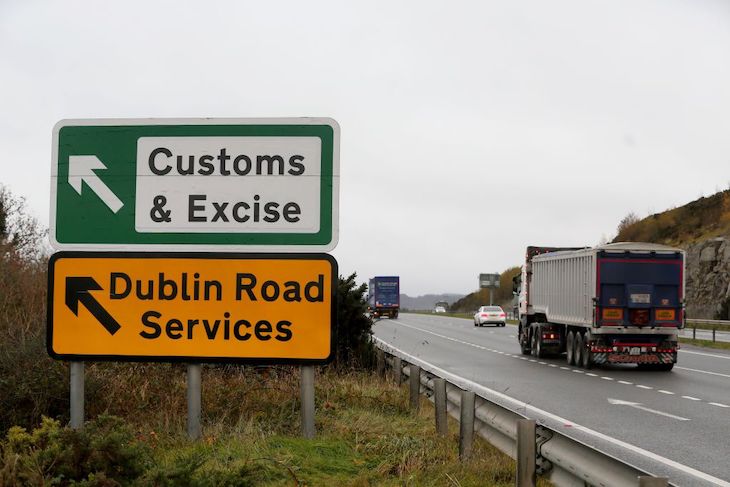With 31 working days until negotiations time out, Theresa May has been selling her vision for post-Brexit Britain to businesses in Northern Ireland. The Prime Minister is hoping her visit will reaffirm the government’s commitment to thwarting any chance of a hard border and sell an agreement that Northern Ireland can get behind, all the while searching for the key to unlock the Westminster stalemate.
Those addressed by May – a business community in Northern Ireland that has endured years of uncertainty on the future of trade with their neighbours – has thus far been drowned out by the political noise. Yet while our politicians talk, businesses in Ireland have been quietly doing what they do best: making decisions and going for growth.
Ireland has fast become a key battleground for the future identity of Europe and the backstop decision will have deep ramifications on what has emerged as a highly collaborative, dynamic and creative entrepreneurial community that is often blind to the border which has inspired so many headlines.
The entrepreneurs on either side are thriving from frictionless trade and have created a community of companies that despite a political crisis have ramped up their investment plans.
On the ground, business leaders are disillusioned with the uncertainty created by Brexit and the macro-economic situation, so instead they are focusing on that which they can control – the success and growth of their companies. Yet this isn’t business as usual: these firms are actively targeting expansion.
In Northern Ireland in particular, where the private equity markets are relatively nascent and businesses have previously looked to the banks to provide investment capital, we now see the emergence of an ambitious enterprise community. Firms are looking to take on funding and double-down on growth.
For both countries, Northern Ireland and the Republic of Ireland alike, small and medium-sized firms are the backbone of the economy and generate real employment and investment. The entrepreneurial class do not recognise a border and freely trade both sides of it, this is frictionless trade at its finest.
The tight knit community is thriving as a whole, and generating sustained momentum, the result of a strong, collaborative network and prominent halo effect from firms making investments at a time of great uncertainty. For entrepreneurs, a hard border is simply not an option.
My company BGF has recently backed a business either side of the border; companies that embody the creativity and innovation that is defining the enterprise culture. Brindley Healthcare in The Republic of Ireland and Uform in Northern Ireland, both are defying the Brexit narrative and investing in growth.
In the last few years, Dublin has consolidated its position as a global home to several of the world’s technology titans – and around them, a collective of entrepreneurs that are bringing to life a vibrant tech hub that will future proof the nation’s digital economy. Yet, there are lesser knowns that are more highly exposed to a hard Brexit. Both the Irish beef and dairy industries are predicated on exporting to Britain and would face enormous disruption and costs from a hard border, customs checks and any potential trade taxes.
As May heads back to London, the stakes for business are high but with the current commitment to growth and determined confidence on the ‘Island of Ireland’, there is a sense that the storm must, and will be weathered. We need to ensure that the money is there for ambitious entrepreneurs to scale – the business leaders aren’t giving up, even if Westminster makes their lives more difficult. It is incumbent on investors to ensure we stand shoulder to shoulder with the entrepreneur class both sides of the border.
Clearly, if the entrepreneurs and business leaders are getting on with it and remain driven by growth – the investors have to follow suit and commit to backing scaling firms.
Stephen Welton is CEO & founder of BGF






Comments